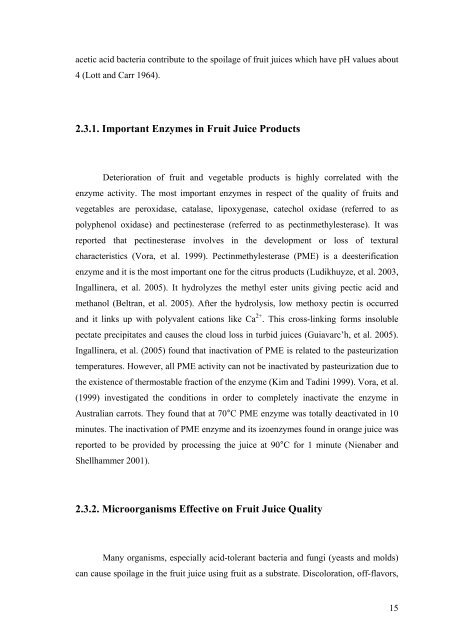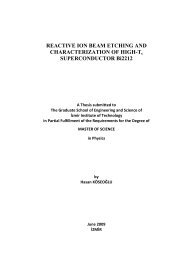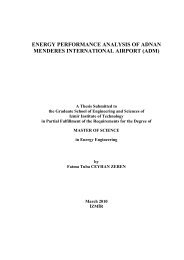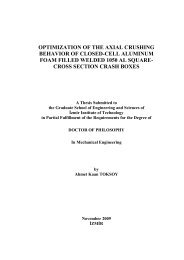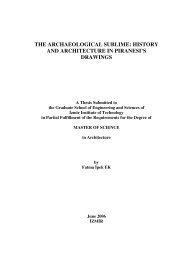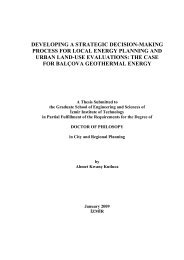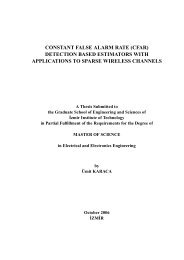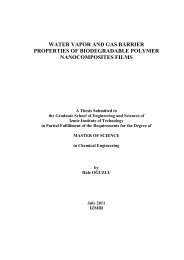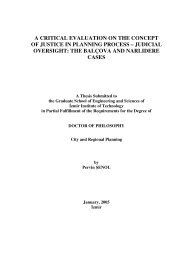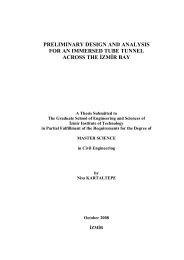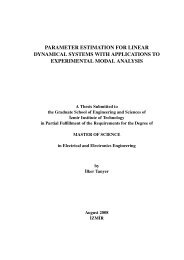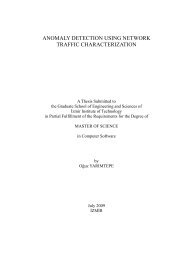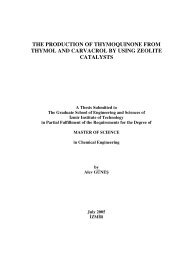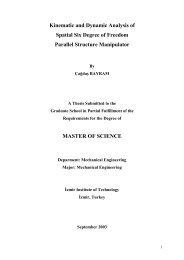UV DISINFECTION OF SOME OF THE FRUIT JUICES
UV DISINFECTION OF SOME OF THE FRUIT JUICES
UV DISINFECTION OF SOME OF THE FRUIT JUICES
You also want an ePaper? Increase the reach of your titles
YUMPU automatically turns print PDFs into web optimized ePapers that Google loves.
acetic acid bacteria contribute to the spoilage of fruit juices which have pH values about<br />
4 (Lott and Carr 1964).<br />
2.3.1. Important Enzymes in Fruit Juice Products<br />
Deterioration of fruit and vegetable products is highly correlated with the<br />
enzyme activity. The most important enzymes in respect of the quality of fruits and<br />
vegetables are peroxidase, catalase, lipoxygenase, catechol oxidase (referred to as<br />
polyphenol oxidase) and pectinesterase (referred to as pectinmethylesterase). It was<br />
reported that pectinesterase involves in the development or loss of textural<br />
characteristics (Vora, et al. 1999). Pectinmethylesterase (PME) is a deesterification<br />
enzyme and it is the most important one for the citrus products (Ludikhuyze, et al. 2003,<br />
Ingallinera, et al. 2005). It hydrolyzes the methyl ester units giving pectic acid and<br />
methanol (Beltran, et al. 2005). After the hydrolysis, low methoxy pectin is occurred<br />
and it links up with polyvalent cations like Ca 2+ . This cross-linking forms insoluble<br />
pectate precipitates and causes the cloud loss in turbid juices (Guiavarc’h, et al. 2005).<br />
Ingallinera, et al. (2005) found that inactivation of PME is related to the pasteurization<br />
temperatures. However, all PME activity can not be inactivated by pasteurization due to<br />
the existence of thermostable fraction of the enzyme (Kim and Tadini 1999). Vora, et al.<br />
(1999) investigated the conditions in order to completely inactivate the enzyme in<br />
Australian carrots. They found that at 70°C PME enzyme was totally deactivated in 10<br />
minutes. The inactivation of PME enzyme and its izoenzymes found in orange juice was<br />
reported to be provided by processing the juice at 90°C for 1 minute (Nienaber and<br />
Shellhammer 2001).<br />
2.3.2. Microorganisms Effective on Fruit Juice Quality<br />
Many organisms, especially acid-tolerant bacteria and fungi (yeasts and molds)<br />
can cause spoilage in the fruit juice using fruit as a substrate. Discoloration, off-flavors,<br />
15


